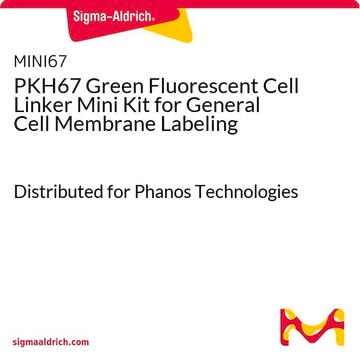H8773
Halocarbon oil 27
Synonym(s):
1,1,2-trifluoro-2-chloroethene, Chlorotrifluoroethylene homopolymer
Sign Into View Organizational & Contract Pricing
All Photos(2)
About This Item
CAS Number:
MDL number:
UNSPSC Code:
12162002
PubChem Substance ID:
NACRES:
NA.75
Recommended Products
form
liquid
InChI
1S/C2ClF3/c3-1(4)2(5)6
InChI key
UUAGAQFQZIEFAH-UHFFFAOYSA-N
General description
Halocarbon oil 27 is a polymer of chlorotrifluoroethylene (CTFE). It is used to lubricate pumps in hyperbaric chambers.
Application
Halocarbon oil 27 has been used in the microinjection of zebrafish embryos. It has also been used for injury (axotomy) assays.
Storage Class Code
10 - Combustible liquids
WGK
WGK 3
Flash Point(F)
Not applicable
Flash Point(C)
Not applicable
Certificates of Analysis (COA)
Search for Certificates of Analysis (COA) by entering the products Lot/Batch Number. Lot and Batch Numbers can be found on a product’s label following the words ‘Lot’ or ‘Batch’.
Already Own This Product?
Find documentation for the products that you have recently purchased in the Document Library.
Sudarshan Chari et al.
Development (Cambridge, England), 146(19) (2019-09-13)
The early embryos of many animals, including flies, fish and frogs, have unusually rapid cell cycles and delayed onset of transcription. These divisions are dependent on maternally supplied RNAs and proteins including histones. Previous work suggests that the pool size
Aparna Ratheesh et al.
Developmental cell, 45(3), 331-346 (2018-05-09)
Migrating cells penetrate tissue barriers during development, inflammatory responses, and tumor metastasis. We study if migration in vivo in such three-dimensionally confined environments requires changes in the mechanical properties of the surrounding cells using embryonic Drosophila melanogaster hemocytes, also called macrophages
Axon death pathways converge on axundead to promote functional and structural axon disassembly
Neukomm LJ, et al.
Neuron, 95(1), 78-91 (2017)
Analyses in zebrafish embryos reveal that nanotoxicity profiles are dependent on surface-functionalization controlled penetrance of biological membranes
Paatero I, et al.
Scientific reports, 7(1), 8423-8423 (2017)
Y C Paquay et al.
ASAIO journal (American Society for Artificial Internal Organs : 1992), 42(6), 961-967 (1996-11-01)
A percutaneous device, provided with a sintered titanium fiber web structure, was designed for implantation in soft tissue. The percutaneous device was inserted by a two stage surgical technique. Between the insertion of the subcutaneous and percutaneous part was an
Our team of scientists has experience in all areas of research including Life Science, Material Science, Chemical Synthesis, Chromatography, Analytical and many others.
Contact Technical Service








